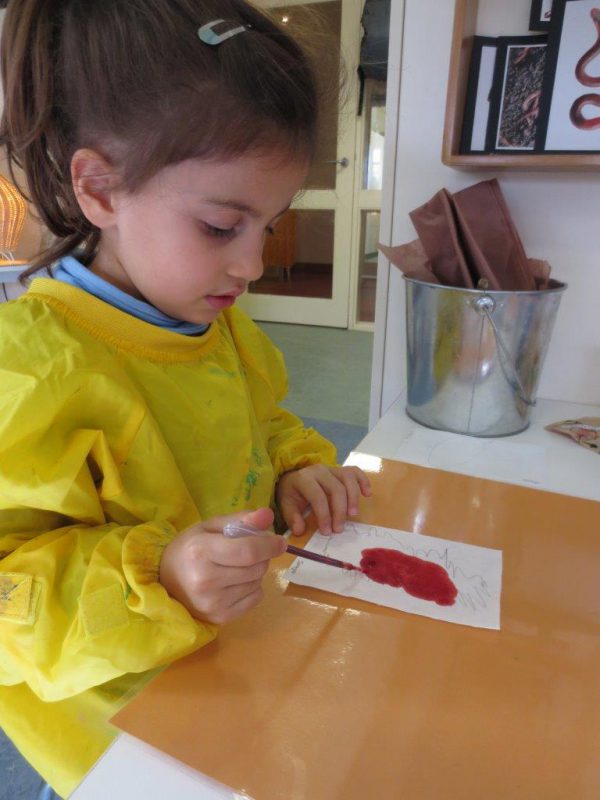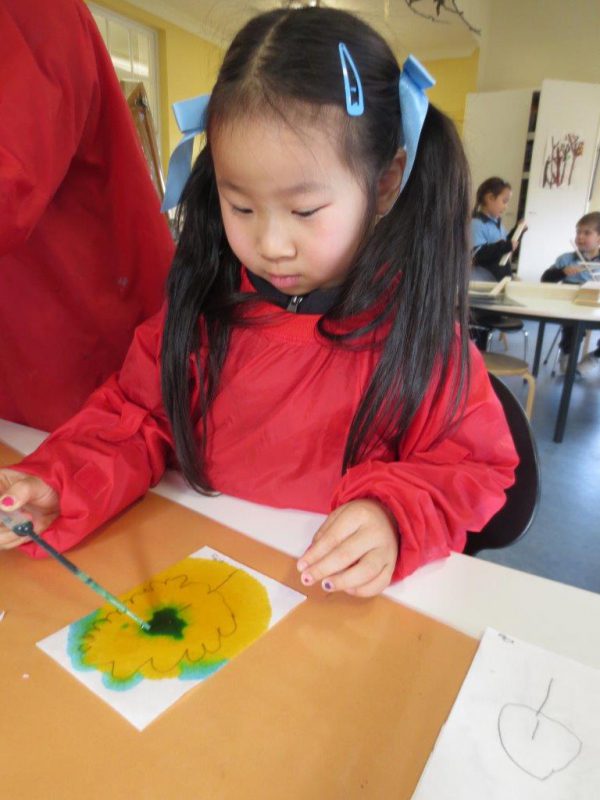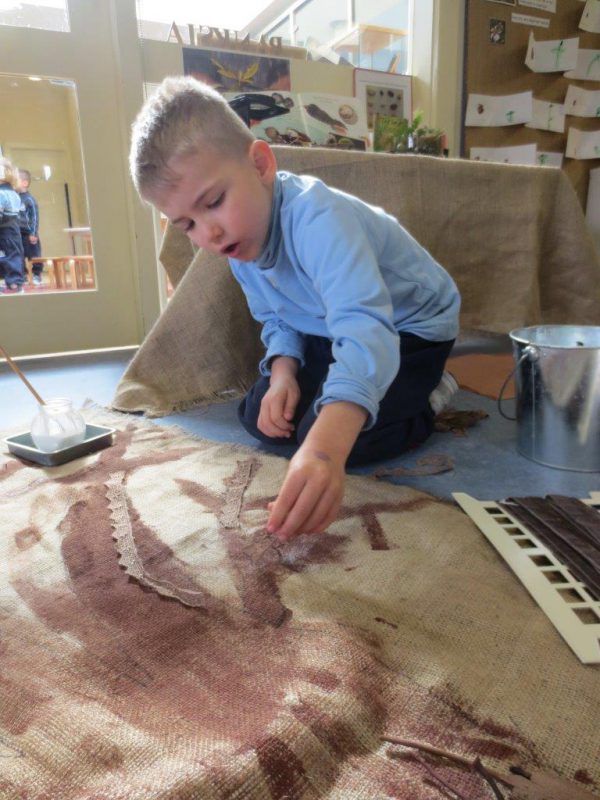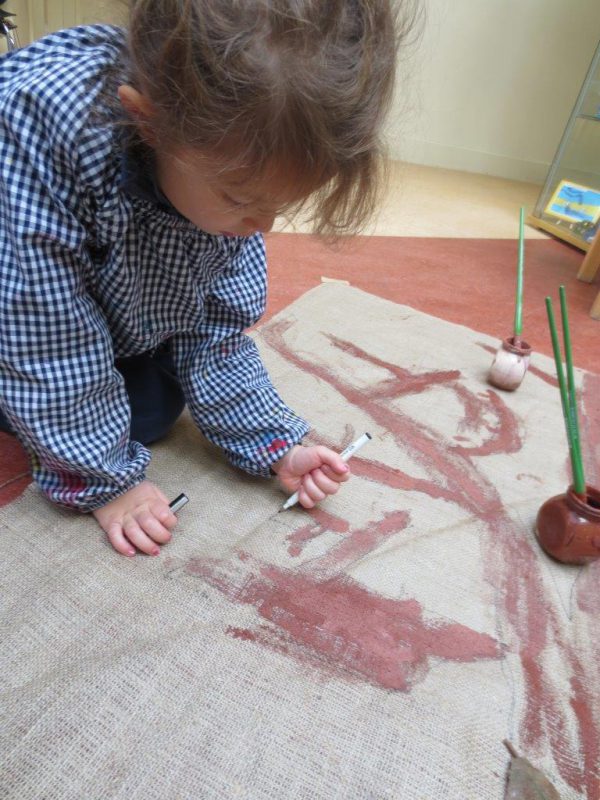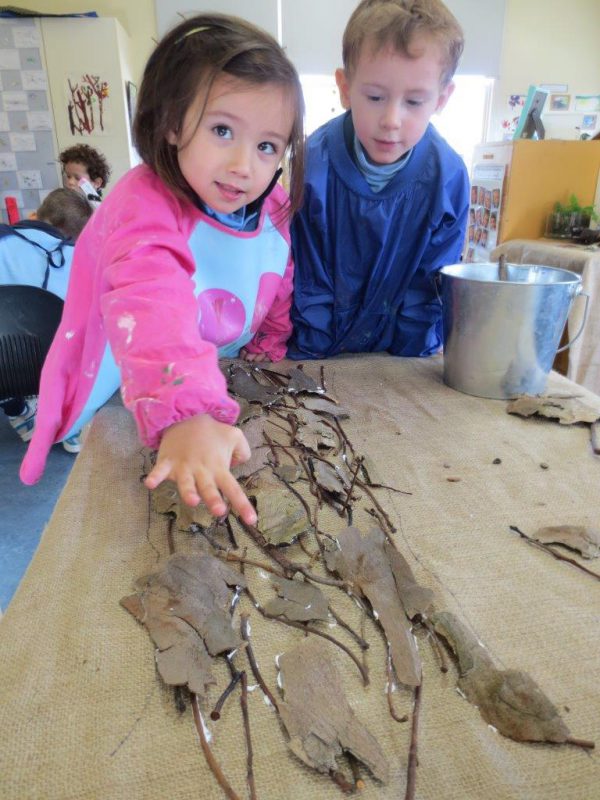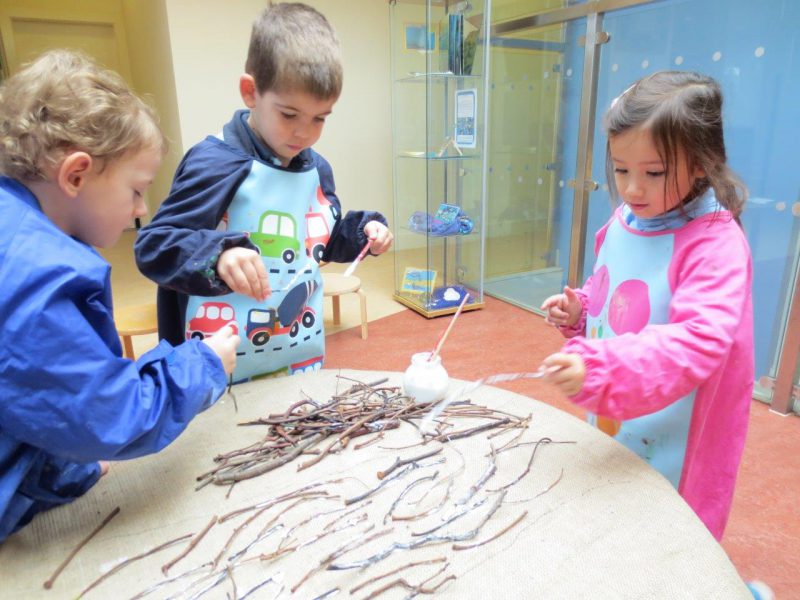Campbell House News
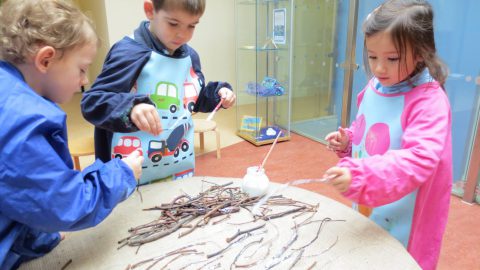
Music and the links to effective learning
A recent article in The Blue Ribbon by Principal Mrs Michelle Carroll articulated the vital learning and achievement that can be gained from learning music.
As educators, we are indeed cognisant of the links and the effectiveness of music programs across the School from the ELC through to Senior School.
How can children benefit from learning music?
- Music lessons require sound focus and enhance listening skills.
- Self-management skills are required in a music lesson.
- Self discipline, memory training and teamwork are key ingredients to a successful music session.
- Full attention to a number of components are required: learning words to songs; listening to the pitch, tone, beat, rhythm, tempo and especially at the ELC stages, movements and actions to memorise.
All of the above and more are demanded if students are to learn effectively. Indeed, practice is highly important and as learners become older, there are high expectations when involved in music lessons.
Music and Early Childhood Learning
The link between music and effective learning is a fascinating and much researched area. As educators, we highly value the role played by music within our learning environment.
A recent article in an Independent School professional journal, provides a compelling insight into the impact learning music has upon brain development. This is, not at all, a new concept.
“I would teach children music, physics and philosophy: but most importantly music, for the patterns in music and all the arts are the keys to learning.” Plato
How does music impact on learning?
Research tells us that through music, children construct strong thinking skills when they are predicting, organising, imagining, anticipating, repeating, extending and inventing. In music sessions in the early years especially, movement and music are partners. Learners are totally immersed in the activities – both mind and body working simultaneously.
Children with sturdy thinking skills, apply them when processing and acquiring language, memorising, linking information, mathematics, predicting, hypothesising, visual recognition tasks and indeed, also creative expression.
Our weekly music lessons in Campbell House are always eagerly anticipated by our young students. The role of music throughout the day in classrooms is seen as integral to an effective learning environment.
What are children doing when engaged in music?
“When children sing or listen to music, when they move or clap or dance to it, they immerse themselves in the experience. When children sing, they listen closely to learn new lyrics and rhymes; they internalise phrasing, predict refrains and mentally organise rhythmic patterns when children sing with their classmates, the sound they create is richer and their experience more broad and inclusive” Elaine Winter, Pre-school Educator
A new study from Boston Children’s Hospital ‘found a correlation between musical training and improved executive function in both children and adults’. Christopher Bergland (in magazine Psychology Today)
Executive functioning is the ability to organise thoughts and activities, the productive processing of new information and then utilising it for future use. All essential elements for effective learning.
The photographs below speak emphatically of the enjoyment and total engagement the children experience when engaged in Music. From the movement, engagement, rhythm work and attentive listening, the benefits of music are clearly evident.
-
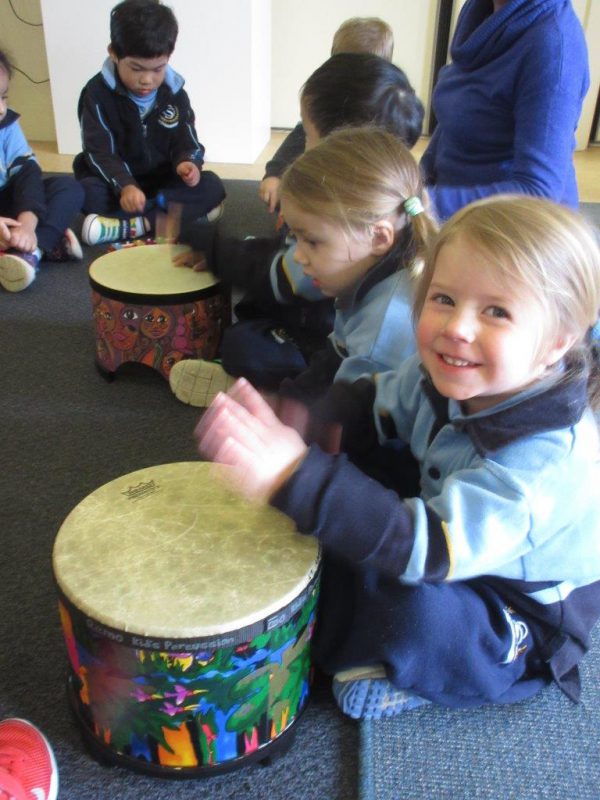
-
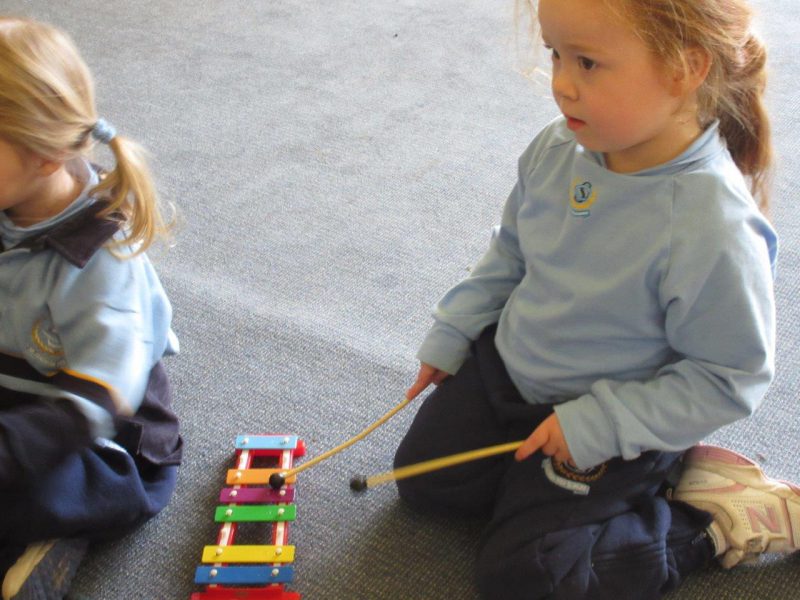
-
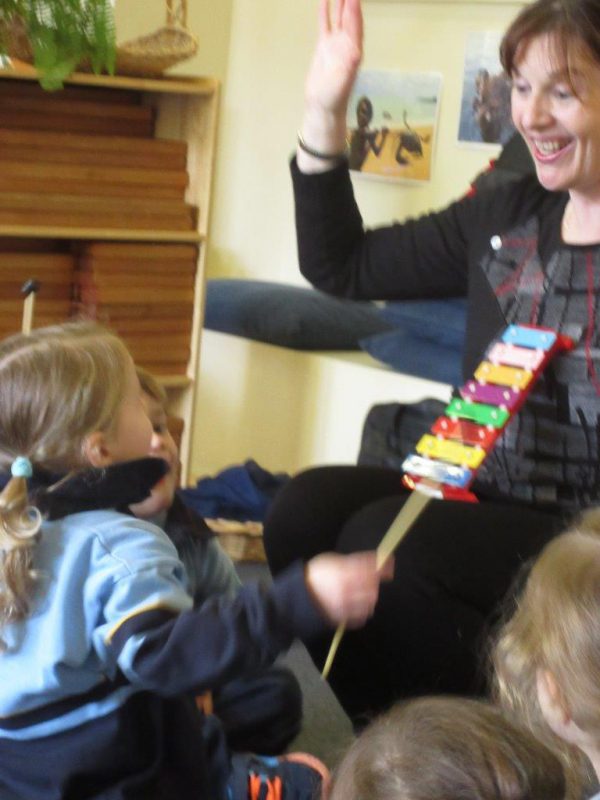
-
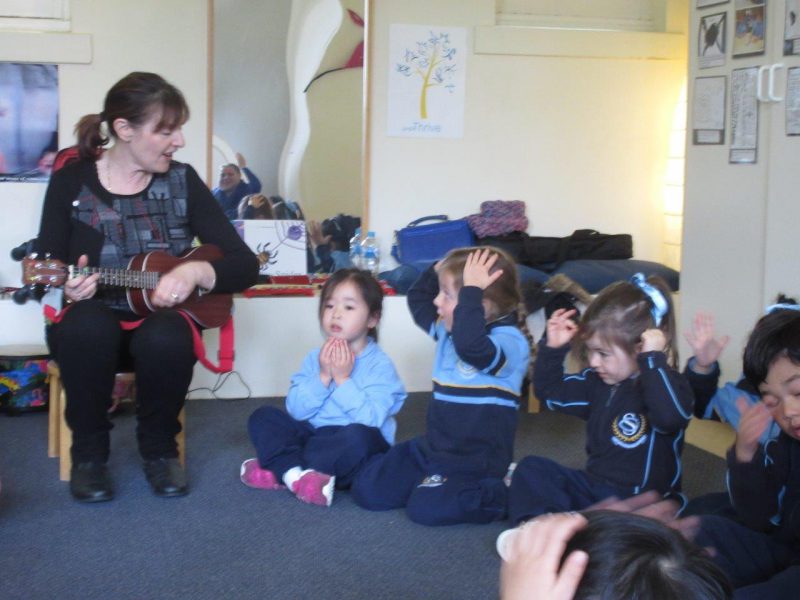
-
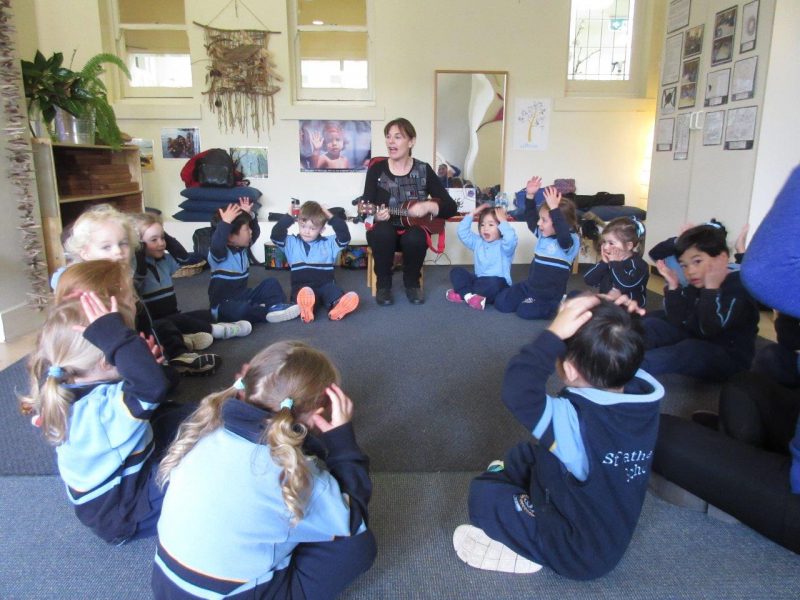
-
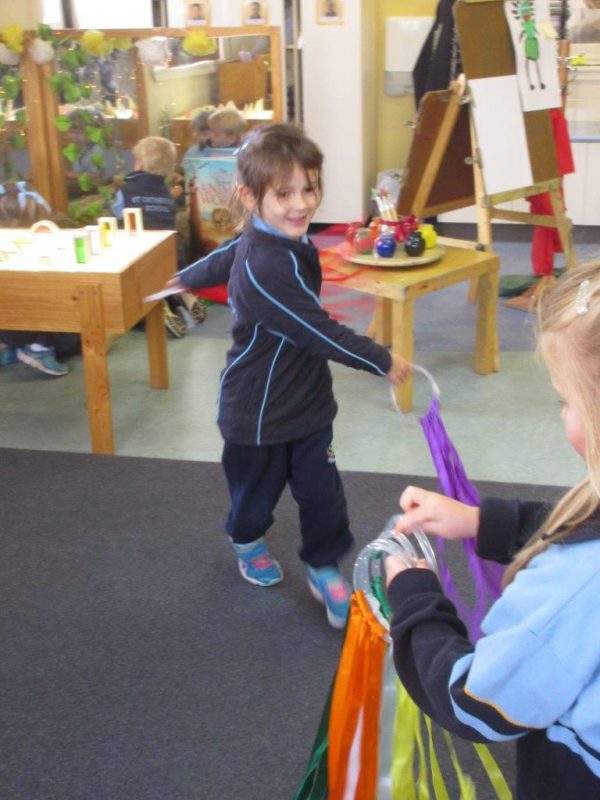
Ribbon Dancing - Wattle Room
-
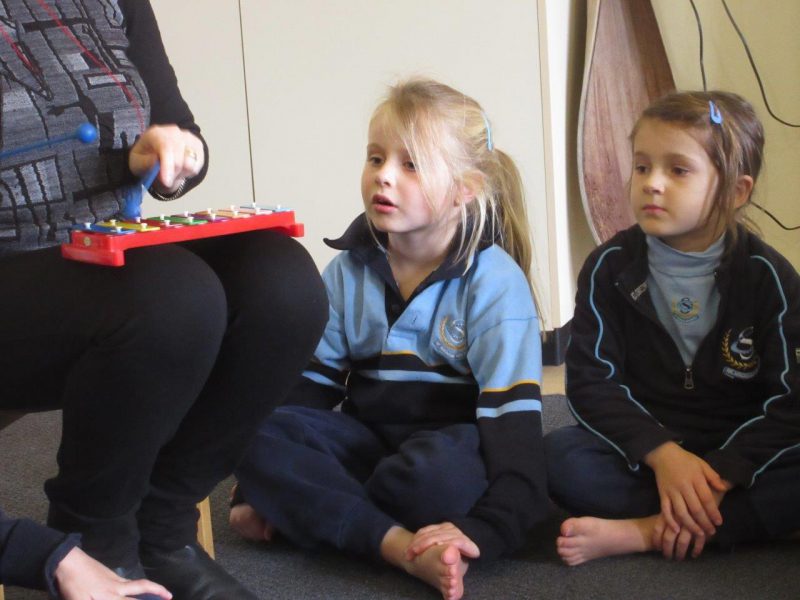
India Peters and Jemimah O'Brien - Specialist Music
-
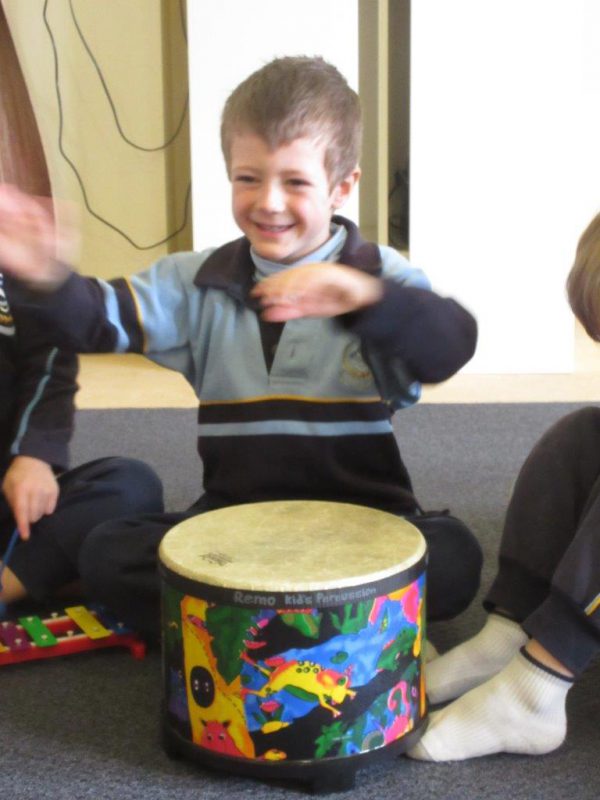
Charlie Martuccio - Specialist Music
-
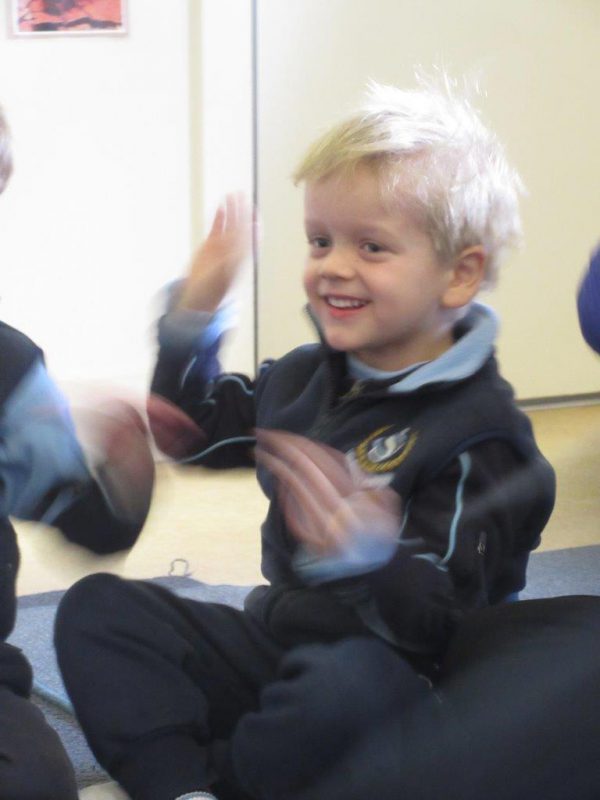
Casper Bell - Specialist Music
Banksia Room
This Term, the Banksia children have embarked on an exciting collaborative project. It emanated from a Morning Meeting discussion about how they could utilise the many autumn leaves they had collected in the playground. Joshua suggested the children create an autumn tree. Everybody was inspired by this idea and our tree project began to grow. The children formed four committees to share the many tasks and collaborated with their fellow committee members in planning meetings to discuss ideas and resource materials before commencing construction.
The Trunk committee and Branch committee have worked tirelessly and our tree is now displaying an elaborate trunk and decorative spreading branches. Now the ‘Leaf’ committee and ‘What lives in trees?’ committee are busily researching information and ideas for the next stage of our project.
Throughout this project, the children have maintained a strong connection to the whole process and are frequently observed acknowledging the tree’s progress and valuing their peers’ contributions. The Banksia Room has blossomed into a community of respectful and committed individuals eager to embrace and express their many ideas.
Mrs Penny Campbell, Banksia Room Teacher
Dogs outside the School gates
Parents are respectfully advised that whilst we love dogs, we need to have them kept or tied up outside the entrance gates to Barbreck and Campbell House please.
Whilst we are aware that walking to school with the family dog is a positive and healthy activity, we have a number of students who are either very afraid of dogs or allergic to dog fur. A small number of parents are also similarly affected.
We have an increasing number of dogs being walked into the School grounds and on two occasions, dogs have walked (on leashes) into actual classrooms. We kindly ask parents to either say goodbye to your daughter at the School gate if you are walking the dog or if in Campbell House, please walk your son/daughter to the classroom after tying the dog to the front fence.
We fully anticipate that all families will appreciate the need for this request.


